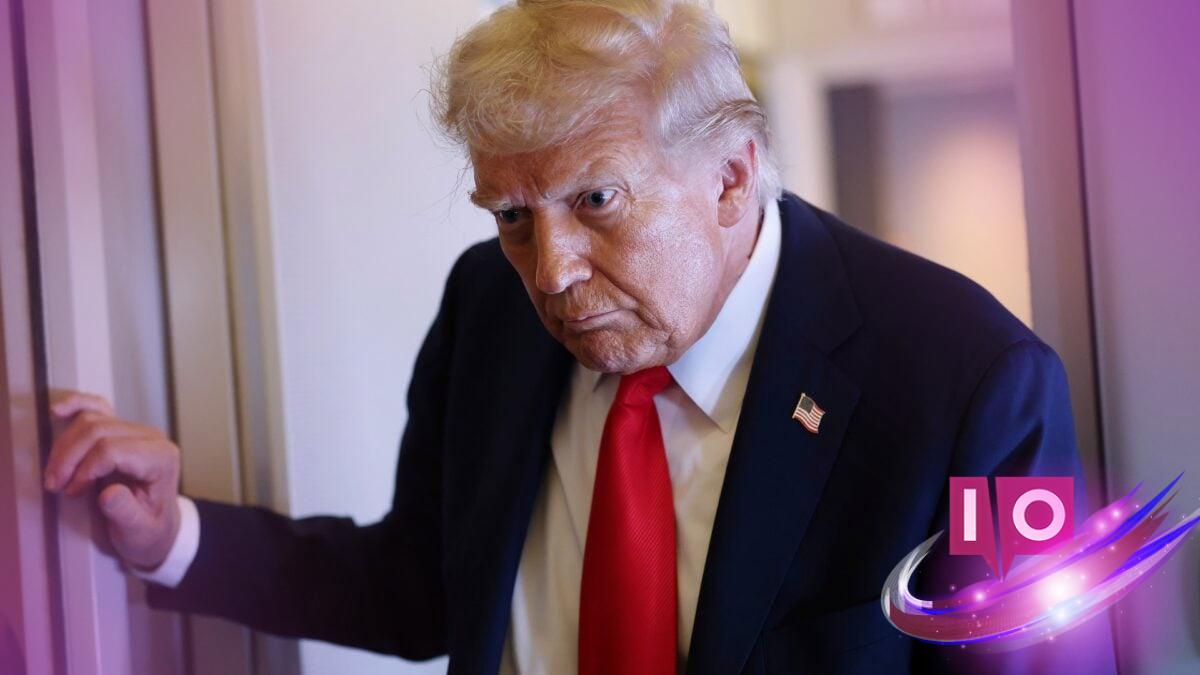The recent suspension of Jimmy Kimmel Live by ABC has ignited significant debate across the nation. This decision, influenced by FCC Chairman Brendan Carr, raises an urgent question: should the president have the power to control what content Americans access on television?
Donald Trump escalated these concerns on Thursday during a press briefing aboard Air Force One, suggesting that any television network that dares to criticize him should face consequences, including losing their broadcasting license. His remarks follow Carr’s threatening comments aimed at ABC in a conversation with podcaster Benny Johnson.
Trump’s Views on Media Criticism
During the flight, a reporter asked Trump whether he would urge Brendan Carr to assess other late-night hosts who have been similarly critical. Trump dismissed the networks, claiming they only deliver “bad publicity” and are overwhelmingly against him. He painted a picture of victorious states during the 2024 presidential election to juxtapose this perceived media bias.
Trump expressed admiration for Carr, labeling him a patriot and someone deserving of authoritative decisions regarding broadcasting licenses. He implied that media outlets providing negative coverage should potentially have their licenses revoked: “I mean, they’re getting a license. I would think maybe their license should be taken away.”
The Reaction of Late-Night Hosts
In response to Trump’s remarks, late-night hosts like Jimmy Fallon and Seth Meyers have joined the conversation. Meyers, in particular, joked that any critical content about Trump may have been generated by AI, showcasing the ongoing friction between the administration and comedic media.
ABC’s Situation and Media Freedom
The back-and-forth has intensified scrutiny on institutions like ABC. Trump gleefully noted that he had already “defeated” both ABC News and CBS News by successfully settling lawsuits against them, suggesting a troubling precedent for media freedom. In fact, ABC’s settlement related to Trump’s defamation claims, demonstrating a concerning trend of self-censorship prompted by fear of retribution.
Following Trump’s comments, discussion on programs like The View became an evident focal point. FCC Chairman Carr indicated interest in scrutinizing similar shows. Interestingly, on the day the suspension occurred, the panel on The View chose not to address Kimmel’s situation, which raises an alarming question: can media professionals freely express their views without fear of backlash?
What’s Next for Late-Night Television?
Is there a solution? Many wonder about the implications of Trump’s remarks on the future of not just late-night television but also the broader landscape of free speech. Will this signal a shift towards sanctioned content? It’s crucial to examine how these developments might impact media independence moving forward.
Are broadcasters legally allowed to criticize the president? Yes, the First Amendment protects media criticism of government officials. Media outlets are within their rights to express dissenting views, fostering a crucial narrative in democratic society.
Could the situation escalate further? If Carr continues to target programming based on perceived bias, we’re likely to see more shows face cancellation or pressure to modify their content.
What impact does this have on public perception? Many citizens may begin to question the objectivity and integrity of media outlets, leading to a potential chilling effect where self-censorship becomes more common among broadcasters.
What alternatives exist for audiences wanting diverse viewpoints? Streaming services and online platforms might become crucial alternatives, especially if traditional networks skew increasingly towards censorship.
Ultimately, the unfolding saga surrounding Jimmy Kimmel Live poses significant implications for media freedom and accountability in America. These discussions are more relevant than ever, illuminating the tension between pop culture, politics, and press liberty. To stay informed, continue exploring relevant content at Moyens I/O.
